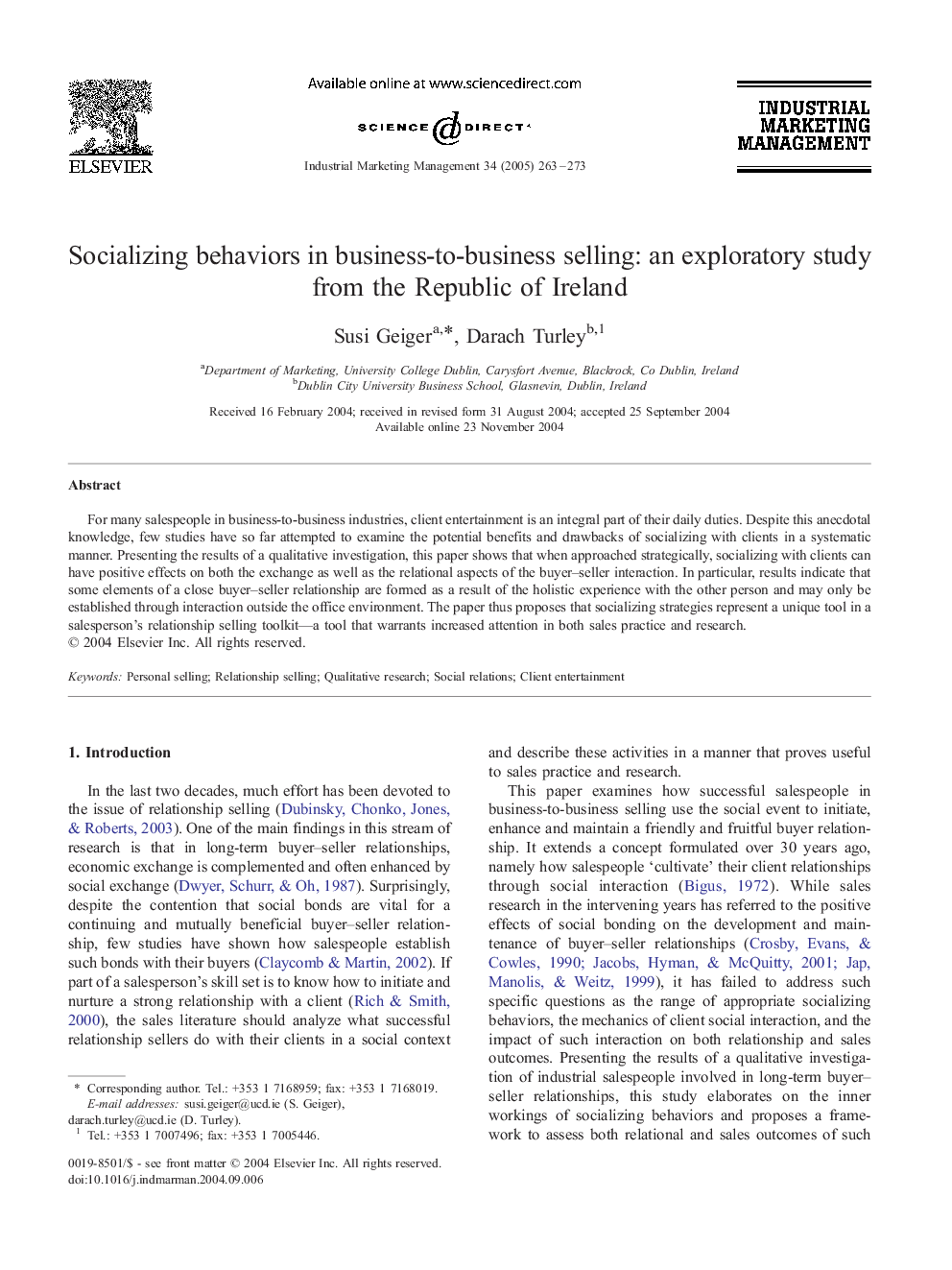ترجمه فارسی عنوان مقاله
رفتارهای اجتماعی در فروش بنگاه به بنگاه: مطالعه اکتشافی از جمهوری ایرلند
عنوان انگلیسی
Socializing behaviors in business-to-business selling: an exploratory study from the Republic of Ireland
| کد مقاله | سال انتشار | تعداد صفحات مقاله انگلیسی |
|---|---|---|
| 23581 | 2005 | 11 صفحه PDF |
منبع

Publisher : Elsevier - Science Direct (الزویر - ساینس دایرکت)
Journal : Industrial Marketing Management, Volume 34, Issue 3, April 2005, Pages 263–273
ترجمه کلمات کلیدی
- فروش شخصی - فروش رابطه ای - مطالعه کیفی - روابط اجتماعی - سرگرمی مشتری
کلمات کلیدی انگلیسی
Personal selling,Relationship selling,Qualitative research,Social relations,Client entertainment

